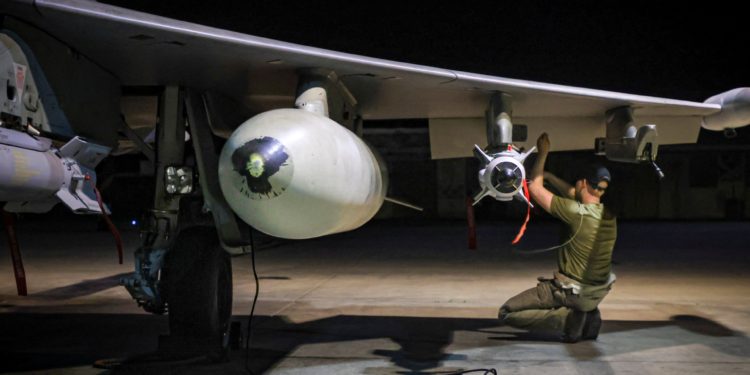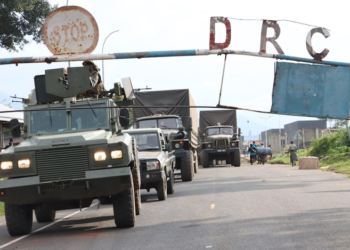By AL JAZEERA
A Houthi underground storage site as well as missile and surveillance capabilities among targets in latest strikes.
The United States and the United Kingdom have carried out a new round of strikes on Houthi targets in Yemen as the Iran-aligned armed group continues to target commercial shipping in the Red Sea.
The Houthis, who control much of Yemen, have attacked dozens of ships in the major waterway since November, disrupting international maritime trade and raising concern about the impact on the global economy.
On Monday, the US and UK said they had carried out eight strikes, with support from Australia, Bahrain, Canada and the Netherlands, targeting a Houthi underground storage site as well as missile and surveillance capabilities.
“These precision strikes are intended to disrupt and degrade the capabilities that the Houthis use to threaten global trade and the lives of innocent mariners,” the joint statement said.
The Houthis have said the attacks are in response to Israel’s war in Gaza and to show their support for the Palestinians.
The armed group has carried out more than 30 attacks on international shipping since mid-November, according to the UK’s Ministry of Defence.
It said the attacks on Houthi sites were to hold the group “accountable for their illegal and unjustifiable attacks on mariners and commercial shipping” as well as to “de-escalate tensions and restore stability in the Red Sea”.
Monday’s strikes came after the Houthis claimed to have conducted a successful attack on the US military cargo ship Ocean Jazz in the Gulf of Aden.
US Naval Forces Central Command denied the claims as “patently false” and said it had “maintained constant communications with M/V Ocean Jazz throughout its safe transit”.
The Houthis did not say when or precisely where the attack took place, or if any damage was caused.
“The Yemeni Armed Forces affirm that retaliation against American and British attacks is inevitable, and any new aggression will not go unpunished,” the group said in a statement.
UK maritime security firm Ambrey said the vessel named by the Houthis on Monday had been contracted by the US military.
Longer route
The US and UK militaries launched attacks against Houthi forces on January 11, a day after the United Nations Security Council condemned “in the strongest terms” the rebel group’s attacks on Red Sea shipping and demanded they stop.
The Houthis began targeting merchant ships on November 19 when they seized the Japanese-operated Galaxy Leader and took it to the port of Hodeidah. The ship’s 25-strong multinational crew, many of them from the Philippines, have been held ever since.
The Yemeni group says the Red Sea attacks are part of their support for Palestinians who have been under attack from Israeli forces in Gaza for more than three months.
More than 25,000 people have been killed, according to Palestinian officials in the territory.
Israel launched its assault on Gaza after fighters from the Hamas armed group carried out a surprise attack on southern Israel on October 7, killing at least 1,139 people, according to an Al Jazeera toll based on official Israeli statistics. Some 240 others were seized as captives during the attack.
So far, Houthi activity has been concentrated in the narrow strait of Bab el-Mandeb, which connects the Gulf of Aden to the Red Sea. Approximately 50 ships sail through the strait daily, heading to and from the Suez Canal – a key artery for global maritime trade.
Some of the world’s largest shipping companies have suspended operations in the region, instead sending their vessels on the longer route around the Cape of Good Hope in South Africa slowing trade between Asia and Europe.







Discussion about this post